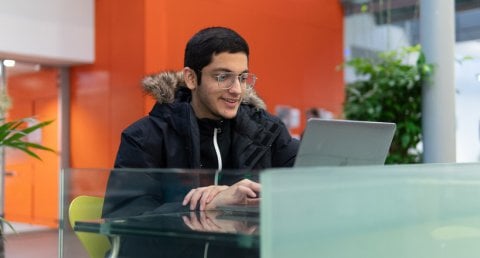
Not sure how to ask about support?
Our guide to speaking to the disability adviser, mental health adviser or student support team will give you some ideas to get you started.
Open days are a valuable way of finding out about a university or college first-hand – you can tour the facilities, speak to staff and current students, and really get a feel for whether you would like to study there.
For disabled students, open days are an ideal way to experience the campus and facilities first-hand, and you may also be able to meet with the disability adviser or student support team to discuss how they can support your individual needs. Find their contact information on the university or college website – they will be happy to tell you more about how they can help you on the day.
To get the most out of your day, it's worth knowing what to expect and doing some preparation in advance – the checklist below will help you get started.
Read the complete UCAS guide to open days – including virtual events
You may also want to:
Think about the practicalities before you set off:
When you’re there:

Our guide to speaking to the disability adviser, mental health adviser or student support team will give you some ideas to get you started.
Juan, 24, is a psychotherapy student at the University of Central Lancashire (UCLAN). He’s registered blind and has a guide dog.
I arrived at UCLAN’s open day with my sister. We flashed my blue badge at the parking attendant and he removed a cone from a disabled bay and waved us in. That struck me as a good sign: they obviously took disability seriously. Every question I asked that day got a positive response. The team could accommodate me and my dog, nothing was a problem. I had asked the same questions at a different university and the staff sucked their teeth and looked uncomfortable. That’s definitely a warning flag!"

